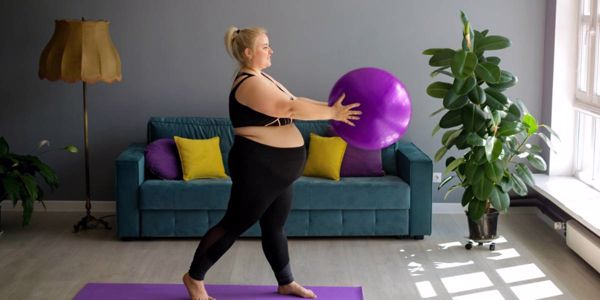Pilates is a low impact workout (which is why it is ideal for pre and postnatal women) that helps to strengthen your body, improve your posture and flexibility, as well as relieve stress and tension. There is a real focus on building core strength, which in turn will help you in day-to-day life (particularly with the changes your body is going through in pregnancy and after giving birth).
Pilates consists of slow and precise movements that target areas of your body for it to move and work in the most efficient way.
Pilates is extremely beneficial during pregnancy and after giving birth for many reasons- see full list of benefits below.
What Are the Benefits of Doing Pilates When Pregnant?
- Strengthen pelvic floor
- Posture awareness
- Prevent back pain
- Prevent/minimise diastasis recti (or 'divarication' - when your abdominal muscles separate, leaving a gap between them).
- Strengthen core
- Speed up recovery postpartum
- Improve general fitness, health, and wellbeing
- Relieve stress and tension
What Are the Benefits of Doing Pilates Post-Birth?
- Strengthen pelvic floor
- Regain good posture
- Prevent back pain
- Improve diastasis recti
- Strengthen core
- Restores confidence
- Improve general fitness, health, and wellbeing
- Relieve stress and tension.
It is recommended that you don’t start Pilates any earlier than 12-weeks, and no earlier than 6 weeks postnatal or 12 weeks if you have had a c-section.
Please note that It's advised you discuss your plans to exercise during pregnancy with your doctor or midwife. It is also recommended that you don’t start a new form of exercise when pregnant - stick to what you've done previously, provided they're suitable.





